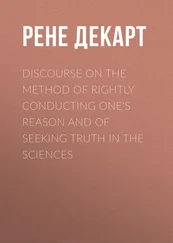‘I think so,’ says Mia.
‘Good.’ Kramer sets his cup on the table. ‘Why don’t you tell me about your brother?’
The ideal inamorata catches her breath and practically chokes. Meanwhile, Rosentreter gets up from the sofa and adjusts his suit. ‘My client doesn’t intend to discuss—’
Mia looks steadily at Kramer. ‘Why would I talk to you about Moritz?’
‘Because you realise the value of more detailed information,’ says Kramer amicably, showing his teeth as he smiles. ‘And because you wouldn’t want me to leap to any conclusions about why a person would turn down a perfectly simple request.’
Rosentreter is standing right in front of Kramer and trying to look more imposing than he is. ‘You have no right to interrogate my client in her apartment,’ he says in an unnaturally deep voice.
‘What’s the big deal, Rosentreter?’ Kramer, still in excellent spirits, leaves the desk and starts to pace around the room. ‘I thought you were interested in Moritz Holl?’
‘I’m interested in my client.’
‘Really?’ Kramer walks around the exercise bike and checks the backlog on the display. ‘Yesterday you asked to see the prosecution’s files on Moritz Holl.’
‘It was essential for my client’s defence.’
‘You weren’t digging up dirt for the second round?’
‘You’re the expert on dirt, not me.’
‘In a sense, yes,’ says Kramer, unruffled. He continues his perambulation, pausing to examine the books on the shelf.
‘Gentlemen.’ Mia’s head has been flicking back and forth as if she were watching a tennis match. ‘What is this about?’
‘It’s about more ,’ says Kramer. ‘It’s about the significance of Moritz Holl’s trial. Isn’t that right, Rosentreter? You’re in it for the glory.’ He swivels round suddenly and fixes the lawyer’s face with eyes as clear as glass. ‘Well, deny it, if you will!’
Rosentreter bows his head, whereupon Kramer nods and returns to the desk.
‘Frau Holl,’ he says genially, ‘truth is subjective, even in a court of law. Knowing and believing are remarkably similar — if not, in fact, the same. In difficult cases, therefore, clever people will judge the truth according to its usefulness, not validity.’
‘What are you saying?’ asks Mia.
‘Your brother,’ says Kramer, ‘is still in our thoughts, albeit for different reasons. He was so damned convincing.’
‘He’ll be proposing a self-help group in a moment,’ says the ideal inamorata.
‘In the case of Moritz Holl,’ says Kramer, ‘your lawyer is gathering evidence against the Method and I’m working in its defence. Opposing forces often converge — for example, right here in this apartment.’
‘You mean, at my brother’s grave.’
‘Why not? Yes, we’ve come together in this apartment to look for the truth at Moritz’s grave. But perhaps you can help us, Frau Holl. What was he really like?’
‘He loved nature,’ says Mia.
‘Don’t you dare discuss Moritz with that monster!’ exclaims the ideal inamorata.
Mia turns to face her. ‘Isn’t it my role in the world to talk about Moritz?’
‘Not to him ,’ says the ideal inamorata. ‘He thinks Moritz posed a danger to society; he’s fishing for proof.’
‘Then we’ll prove the opposite,’ says Mia. ‘Humans are essentially the packaging for memories; I’m the packaging for Moritz.’
The ideal inamorata doesn’t reply.
Rosentreter clears his throat uncomfortably and opens his mouth to speak, but Kramer stops him with a warning glance that Mia doesn’t see. For a moment, the two adversaries exchange understanding looks.
Mia gets up quickly and walks to the window. ‘Moritz loved nature. As a child, he spent hours studying a single leaf or a beetle. Do you know how many different sorts of beetle you can find in one bush?’
‘Loving nature is a necessary precursor to loving humanity,’ Kramer prompts.
‘Moritz loved all living things. When he was little he kept snails in a wooden box and gave them names. He said their slowness made them strong. They used to escape from the box at night-time by lifting the lid with their shells.’
‘Snails take their houses wherever they go,’ says the ideal inamorata dreamily. ‘Moritz would have liked that.’
‘While he was sleeping they slithered around the room. Sometimes he woke in the morning with a snail on his cheek; it made him smile. I thought it was disgusting. We shared a room.’
‘There’s nothing disgusting about loving living creatures.’ Kramer has been sifting through the papers on Mia’s desk. Carefully, he opens a drawer. ‘Gastropods aren’t known for their warlike tendencies or weapons of mass destruction, which is more than can be said for man.’
‘Moritz took more or less the same view. He thought nobody understood him — our parents, his friends, me. When he was little, he talked more to plants and animals than to us.’
‘But you were his favourite animal,’ says the ideal inamorata. ‘He named most of the garden after you. Trees, bushes, flowers, birds, worms — they were all called Mia.’
Mia nods and presses the balls of her hands into her eyes. ‘When he got sick, the snails had to go. We had doctors in the house, and my parents were worried about the consequences. Moritz never forgave them.’
‘Sick?’ queries Rosentreter, surprised. ‘It isn’t mentioned in the files.’
Kramer shrugs, signalling that Moritz’s illness is news to him as well.
‘He was cured,’ says Mia. ‘There was no hereditary component. My parents had the incident deleted from his files.’
‘Damned researchers,’ says Kramer. ‘They should have picked up on it. If I’d known he was sick—’
‘He got better,’ objects Mia.
‘Once sick, always sick,’ says Kramer. ‘It sticks with you.’
‘What stuck with me,’ says Mia, ‘is that the Method saved his life.’
‘His life? What was wrong with him?’ asks Rosentreter.
‘Leukaemia,’ says Mia, turning away from the window. Her gaze falls on Kramer, who is busy examining the photograph of Moritz with his head in a noose.
‘The show is officially over,’ she says. ‘Sorry to interrupt your snooping, but I hope you found it helpful.’
‘Very.’ Kramer brushes a few specks of dust from his sleeve.
Rosentreter places a finger on his chin and stares ahead, deep in thought. The ideal inamorata looks at his profile and seems to be thinking as well. Leu-kae-mi-a. The climate of the room has been transformed by the rare conjunction of syllables. But Kramer, clever Kramer, is oblivious to the change. He has collected his hat and stick and is busy pursuing new goals.
‘You spoke with the eloquence of a poet. You don’t mind if I quote you?’ he says, his fingers already on the handle.
With that, he is gone.
MIA’S ATTITUDE TOWARDS Kramer is ambivalent , to use a word beloved of the undecided. She cannot even say that she dislikes him. In fact, earlier that day, when he bent over her attentively to hand her a cup of freshly brewed water, a ritual that assumed an almost absurd perfection in his hands, it seemed to her briefly that she could love him. Not because of his manners — good manners being an agreeable way of disguising whatever one happens to be thinking at the time. And not because of his looks, which like all things of beauty were eroded by familiarity, so that after meeting him for the first time, Mia was unable to find him attractive or unattractive but simply and undeniably there . No, Mia was impressed by the way in which he could serve a cup of water as if it were a sacred act. The attention he lavished on a seemingly unimportant action spoke of a wholehearted and unconditional engagement with the world which Mia, if she is honest, admires. Kramer puts himself wholly and unconditionally into everything he does — walking, talking, standing, dressing. He thinks and speaks with a ruthlessness that makes no attempt to find dialectical excuses for the eternal uncertainty of humankind. Anyone who claims that truth is dependent on usefulness, anyone who openly admits that knowing and believing are essentially the same for limited beings such as humans, is clearly a nihilist in a class of his own.
Читать дальше












